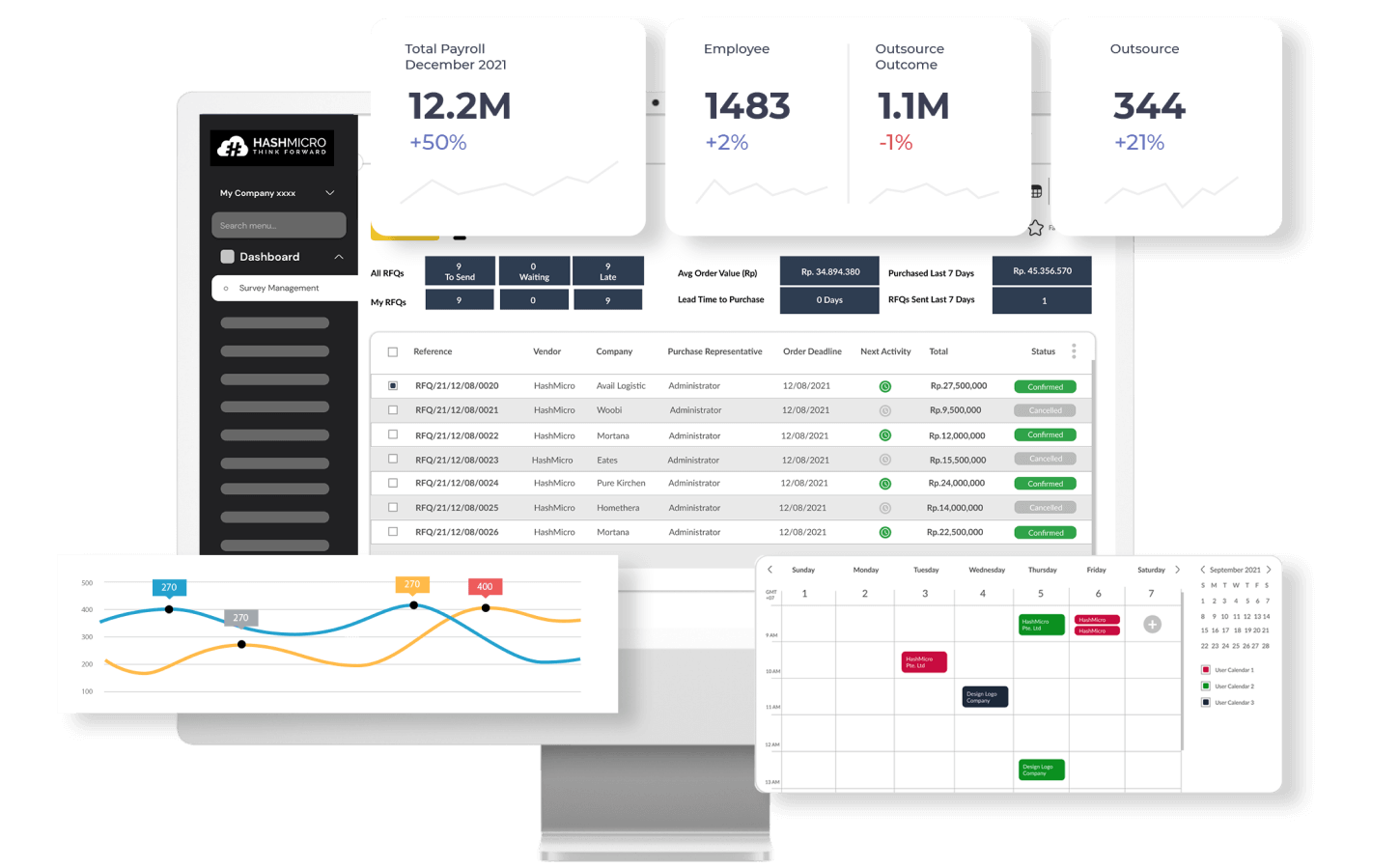For many business leaders, balancing production efficiency with cost-effectiveness is a constant challenge. Toll manufacturing provides a practical solution by enabling companies to outsource parts of their production process to reliable third-party manufacturers while maintaining quality and control.
Its company can scale production faster, cut overhead costs, and allocate resources to core business growth. This article will guide you through what toll manufacturing is, why it is a smart strategy for modern companies, and how partnering with the right software provider, such as HashMicro can help you manage it with ease.
Basahin pa upang malaman kung paano makakatulong ang paraang ito na i-optimize ang iyong operasyon at mapataas ang iyong kita.
Key Takeaways
|
Table of Contents

What is Toll Manufacturing?
Toll manufacturing is a type of outsourcing agreement where a company supplies its own raw materials or semi-finished products to a specialized third-party manufacturer, who then processes or completes the production according to the company’s specifications.
This arrangement allows businesses to leverage the expertise, equipment, and capacity of an external partner without having to build or maintain their production facilities.
The Difference Between Contract and Toll Manufacturing
To help you clearly understand how contract manufacturing and toll manufacturing differ, the table below highlights their key characteristics, responsibilities, and advantages at a glance.
| Aspect | Contract Manufacturing |
Toll Manufacturing |
| Material Ownership | The manufacturer usually sources and owns the raw materials. | The hiring company provides and retains ownership of the raw materials. |
| Production Control | The manufacturer manages the entire production process. | The hiring company specifies the process, and the toll manufacturer executes it. |
| Cost Structure | Costs often include materials, labour, overhead, and margin. | Costs typically cover only processing and labour; the client supplies materials. |
| Flexibility | Less control over material sourcing but lower procurement responsibility. | More control over material quality and supply chain management. |
Advantages and Disadvantages of Toll Manufacturing
Understanding the advantages and disadvantages of toll manufacturing helps businesses make informed outsourcing decisions and minimize risks.
To gain the maximum benefits from this approach, many companies also leverage the benefits of manufacturing software to manage production workflows and inventory more effectively. The table below highlights some key points to consider before choosing its for your business.
1. Advantages of toll manufacturing
- Reduces the need for significant capital investments in production facilities and machinery.
- Provides access to advanced technology and skilled labour without expanding in-house
- operations.
- Allows companies to maintain control over raw materials and product quality.
- Makes it easier to scale production up or down based on market demand.
- Enables businesses to focus resources on core activities like research, marketing, and sales.
2. Disadvantages of Toll Manufacturing
- Creates a dependency on third-party manufacturers, which may lead to production delays or capacity constraints.
- Requires careful coordination of logistics, including the supply of raw materials and delivery schedules.
- May involve extra costs or time if production specifications change mid-process.
- Poses potential risks to proprietary information and process confidentiality when working with external partners.
What is a Toll Manufacturing Agreement?
A toll manufacturing agreement is a formal contract between a company and a third-party manufacturer that outlines the terms, responsibilities, and conditions for processing the company’s raw materials into finished or semi-finished products.
This agreement defines the scope of work, quality standards, timelines, and pricing, ensuring both parties understand their obligations and maintain clear communication throughout the production process.
To support the execution of such agreements, many businesses use manufacturing inventory software to monitor raw material usage, track production status, and maintain accurate records in real time.

Improve Your Toll Manufacturing Workflows with HashMicro
Managing toll manufacturing can be complex, but the right software can make it significantly easier and more efficient. HashMicro provides an integrated solution to help businesses oversee every stage of their process with greater accuracy and control.
With HashMicro, you can streamline workflows, minimize errors, and maintain full visibility over production and inventory, even when working with third-party manufacturers. Key features that support your toll manufacturing operations include:
- Real-time tracking of raw materials and finished goods across multiple locations.
- Automated production planning and scheduling to optimize capacity and timelines.
- Accurate cost tracking for each toll manufacturing order to maintain profitability.
- Centralized documentation and work orders to ensure clear communication with external partners.
- Comprehensive reporting and analytics for better decision-making and performance monitoring.
Conclusion
Toll manufacturing offers a practical way for businesses to increase production capacity, uphold quality, and manage costs without investing heavily in new facilities. By knowing what it is, how it differs from contract manufacturing, its advantages and drawbacks, and the need for clear agreements, companies can make better outsourcing choices.
To run these operations more efficiently, consider using an integrated system like HashMicro. With features such as automated production planning, real-time inventory tracking, and precise cost control, HashMicro provides full visibility and better management of your workflows.
Book a free demo to discover how HashMicro can enhance your production process and boost your business efficiency.






















